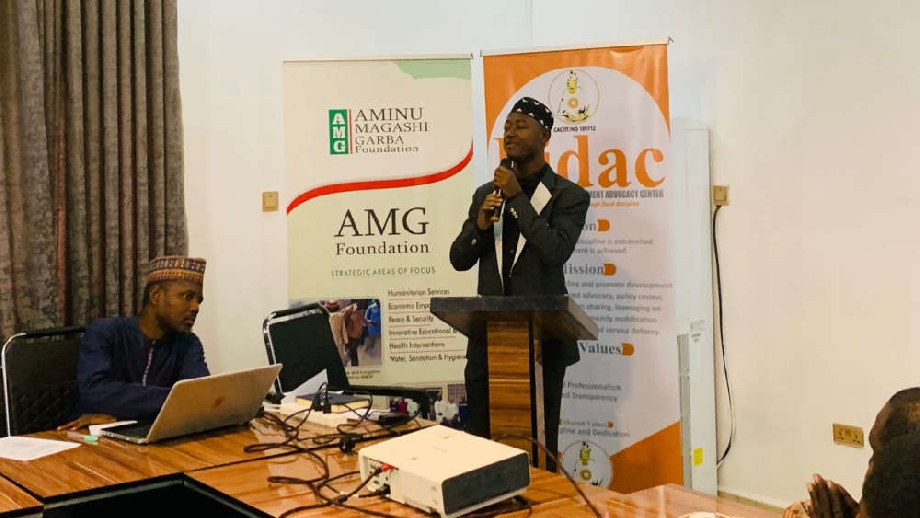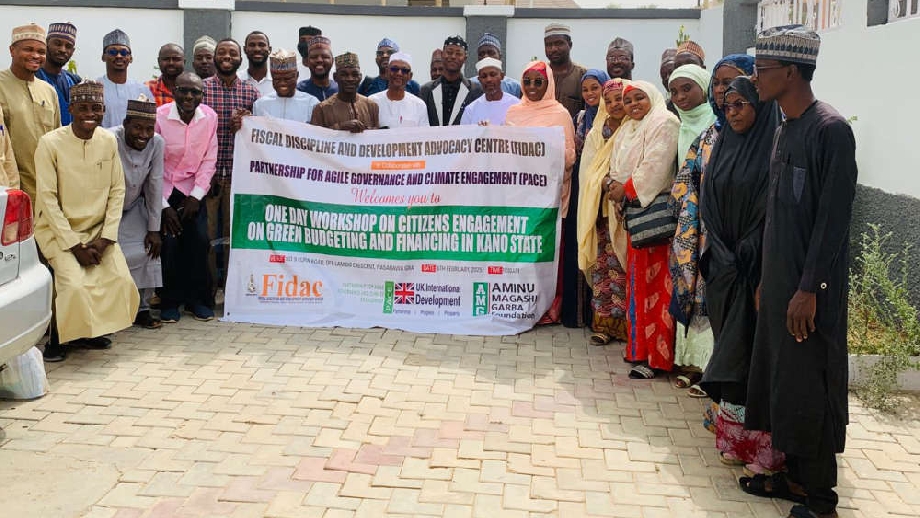
The Fiscal Discipline and Development Advocacy Centre (FIDAC) says it will intensify efforts to push for the domestication of the Climate Change Act 2021 into law in Kano State.
The Executive Director of FIDAC, Dr. Abdusalam Muhammad Kani, disclosed this at a one-day workshop organized by FIDAC in partnership with Agile Government and Climate Engagement (PACE) on Green Budgeting and Financing.
Green budgeting is an approach that integrates climate and environmental considerations into government financial planning.
This means that state budgets would prioritize renewable energy, climate-smart agriculture, waste management, and eco-friendly infrastructure.
Dr. Kani expressed concerns that the commercial hub in northern Nigeria faces serious environmental threats, including desertification, flooding, air pollution, and extreme heat.
He said despite the State’s policy on Climate Change Act in 2021, which provides a framework for tackling these issues, Kano is still challenged with climate change-related problems.
Dr. Kani stressed the need for urgent legislative action to address the environmental crisis and ensure sustainable economic growth.
He said, “Green budgeting is timely, but it reduces government spending, but to achieve it, the policy must be domesticated into law to ensure fiscal policies prioritize climate resilience and sustainability”.
To achieve its goal, FIDAC believes the State Government must continue to promote budgetary allocations that support environmental sustainability.

Speaking further, Dr. Kani said the workshop focused on raising awareness about climate change policies and how Kano State can integrate climate-conscious initiatives into its budget, adding that it was designed to educate and engage citizens on the importance of environmental sustainability.
“Our major objective is to ensure citizens’ engagement, sensitization, and enlightenment on the consequences of climate change.
Kano State currently has a climate change policy, and our role as advocates is to ensure that its implementation is taken seriously”.
He said, “We are working to ensure that capital projects in Kano reflect climate-resilient structures.
Our goal is to see a greener Kano in the next two years through continuous monitoring, advocacy, and public awareness”.
Director of Climate Change at the Kano State Ministry of Environment and Climate Change, Umar Sani Anka, delivered a presentation on how the state plans to integrate green budgeting into its financial planning.
“Kano has budgeted over 30 billion Naira to ensure climate change activities are incorporated into governance,” Anka stated.
According to him, “Greening our budget means reducing greenhouse gas emissions, promoting a healthier environment, and building a climate-resilient state”.
Anka expressed optimism that with the current administration’s commitment, Kano can achieve success in Rwanda’s environmental policies.
“It is achievable because the state government is committed to making changes in transport and energy policies”, he explained.
Anka further said, “With political will and institutional support, Kano can make significant progress, although our population is much larger than Kigali’s”.
Anka also called on citizens to take responsibility for environmental protection, emphasizing that government efforts alone would not be sufficient.
“Change begins with us, so no matter how much the government invests, if people do not change their attitude toward waste disposal, we will not achieve our goals.
Climate action starts with individual responsibility, and that’s why citizens’ engagement is crucial”, he stressed.
Through the workshop, the FIDAC and PACE are raising awareness about the economic and social benefits of climate legislation.


